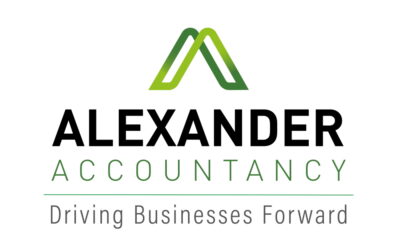
27th July 2023 Posted by - Alexander Accountancy
Why cash flow management is essential right now
Last week the Office for National Statistics (ONS) stated that the UK’s rate of inflation dropped to 7.9% in the year to June, which means the rate of price rises in the UK has slowed more than expected, down from 8.7% in May – although it still remains high. Falling fuel prices contributed to the drop, while food prices rose less quickly than in June last year. Experts are predicting that the Bank of England will increase interest rates by a minimum of a quarter per cent in August as they continue with their plan to get inflation down to 2 per cent.
With increased supplier prices, continued rises in interest rates, and high annual inflation, managing your business’s cash and understanding the flows is a vital tool in maintaining resilience and being able to adopt flexible strategies for success.
An example of recognising the importance of cash flows is Amazon. They recently launched a flexible financing programme that gives businesses access to funding linked to their sales, allowing them to repay as they earn. A merchant cash advance, delivered in collaboration with financing provider “YouLend” could provide a new flexible financing option for eligible UK-based businesses selling on Amazon.co.uk, which provides greater cash flow suppleness in addition to the fixed-term business loans already offered by Amazon Lending. We expect to see more businesses adopting “elasticity” arrangements with their customers in the future.
Cash flows are a reflection of all the cash that is flowing in and out of a business. Owners can look at the direction of the cash flows for insights about the health of specific products or services and overall market patterns.
No matter how inventive or simple your business model is, you can still have problems with cash flow and here are some of our thoughts on managing the flow of cash in your business:
The first stage of understanding and predicting how funds flow is to perform a health check on your accounts. Look at your latest profit and loss statement and check that your income is sufficient to cover your expenses. If your profit is falling behind your expenses and cash flow is slowing down you might need to take action. Prepare a funds flow statement so you know where the money goes.
Next create a yearly budget, look where cash could become tight and identify months where you can save to cover off the quieter times. Look at those quieter months and think about flexible work scheduling, new products or services, or other activities to tide you over.
Finally make sure you collect your money from those who owe you quickly. Reward customer loyalty by offering early bird discounts. Set credit limits and payment terms to ensure customers follow the rules. If you take on new customers, make credit checks. Penalise late payers and request up front deposits or payment (if appropriate).
Talk to us about preparing a funds flow statement and annual budget so that you can work on your business for maximum success! Call 01283 743851 or email in**@al*******************.uk
Working Capital Finance – can it help with cash flow?
Working capital finance solutions can offer businesses the opportunity to improve cash flow. The world of commercial finance and asset based lending (ABL) is complex and expansive with products, terminology and contractual interpretation varying from lender-to-lender.
The Benefits of arranging Working Capital are:
- Up to 90% of outstanding invoice value can be advanced relatively quickly;
- Flexible lending – funding increases in line with your growth (UK and Export);
- Confidentiality – lenders can offer a completely confidential service – your customers need not know you have a facility in place;
- Lenders allow you to manage your funding at all times;
- Sector-specific finance is often available;
- Structured ABL – funding for management buy-outs/management buy-ins; and
- Trade Finance & Supply Chain Finance Solutions.
Specialists in this area can advise on:
- Invoice Finance – an effective way of quickly accessing a proportion of the value (up to 90%) of your invoices. Effectively a business ‘sells’ its invoices to the lender in return for accessing cash at the point products and services are sold. Specific sector based offerings are available, as is the ability to arrange finance for selected invoices only.
- Structured ABL – generate a higher level of funding by unlocking the maximum value tied up in the combined assets within your business, including Debtors, Inventory, Plant & Machinery and Property. Additional forms of funding can be structured in addition to this, such as top up loans in order to drive growth.
- Trade Finance – supply chain finance with various options, enabling the purchasing of goods from overseas where you are otherwise unable to obtain credit from suppliers.
Typically, you will need to ensure your management accounts are up to date and you make available current detailed lists of debtors and creditors. You might need up to date projections before an expert will consider your application.
Please talk to us about finance; our working capital finance experts have many years of experience and success in advising businesses across a wide range of sectors in obtaining working capital finance solutions.
